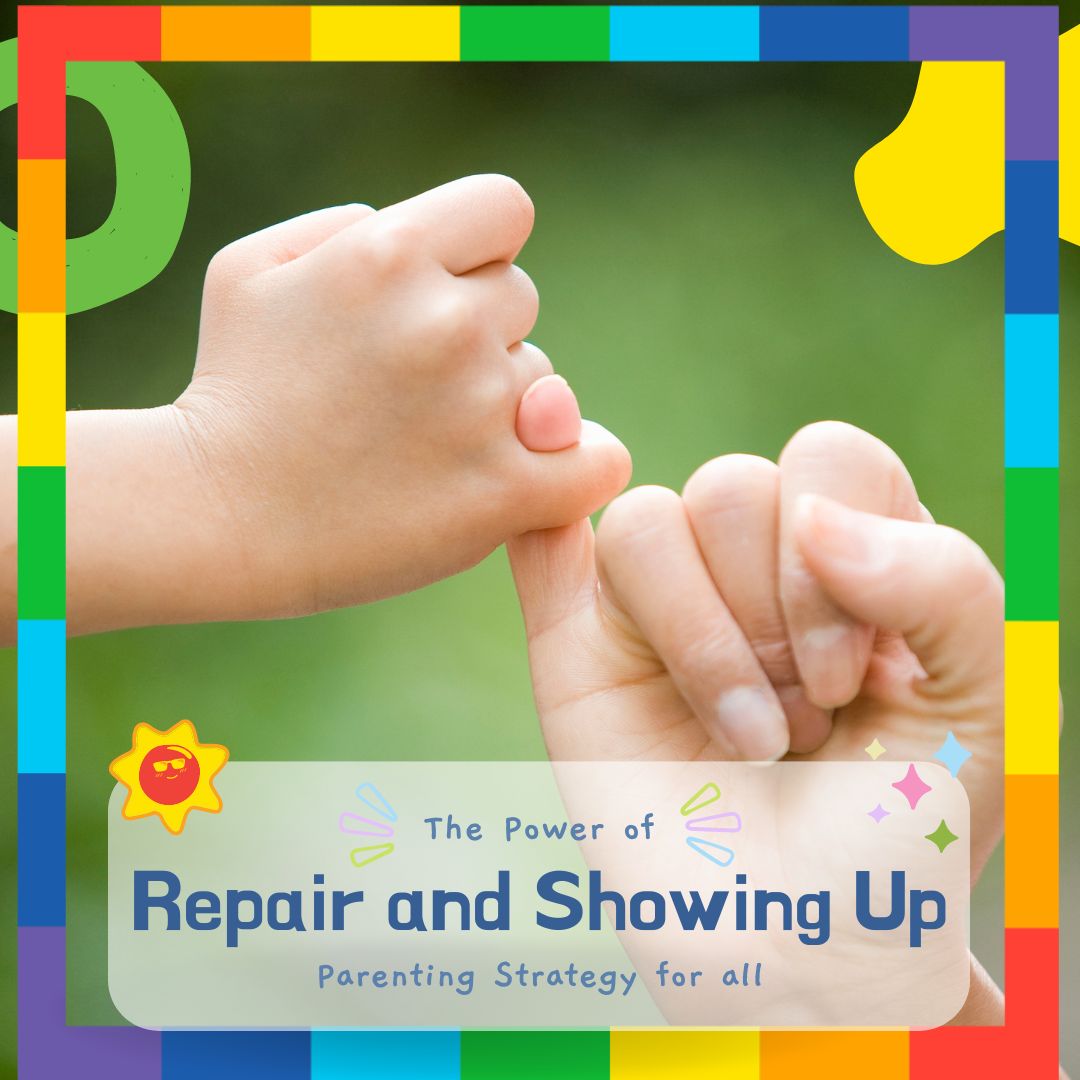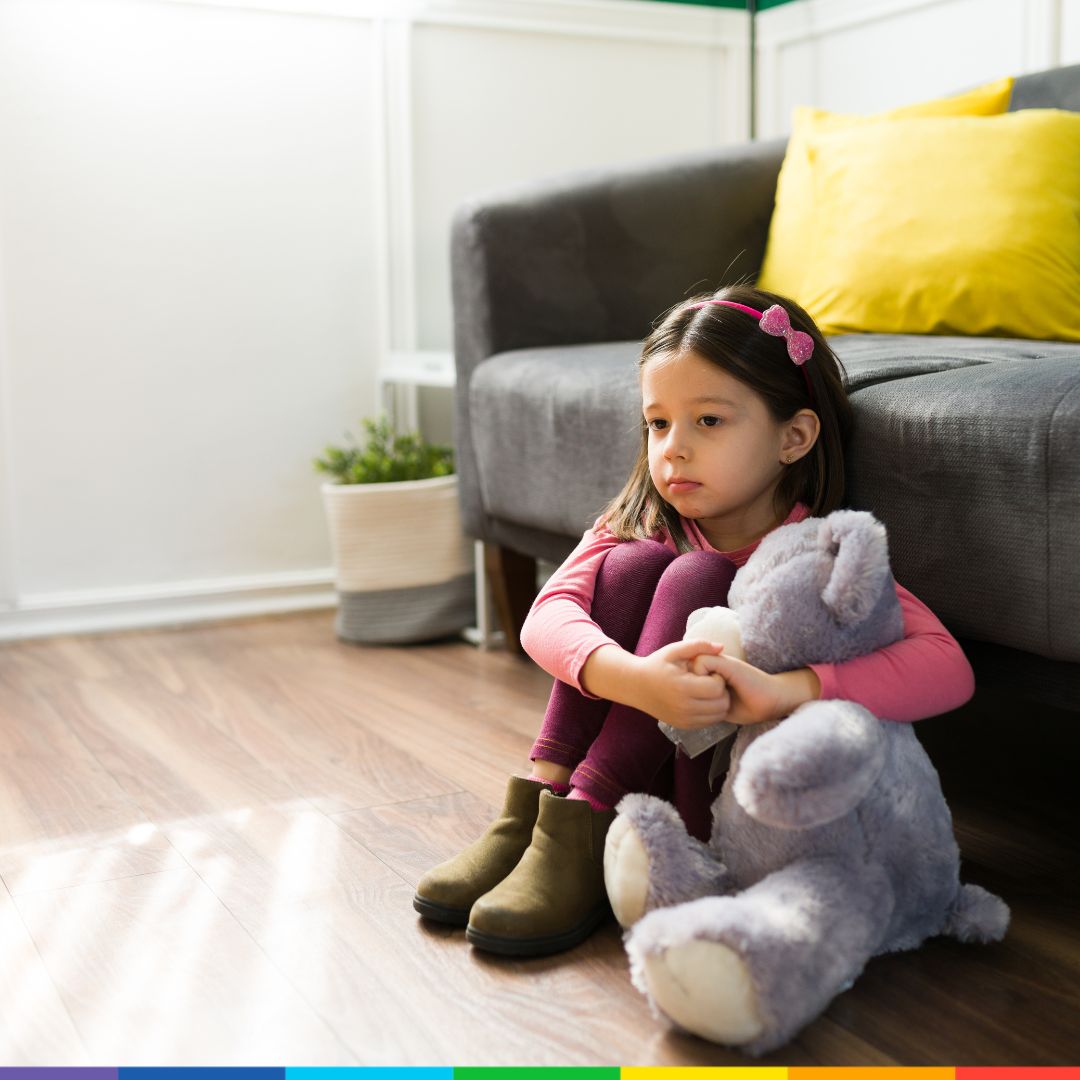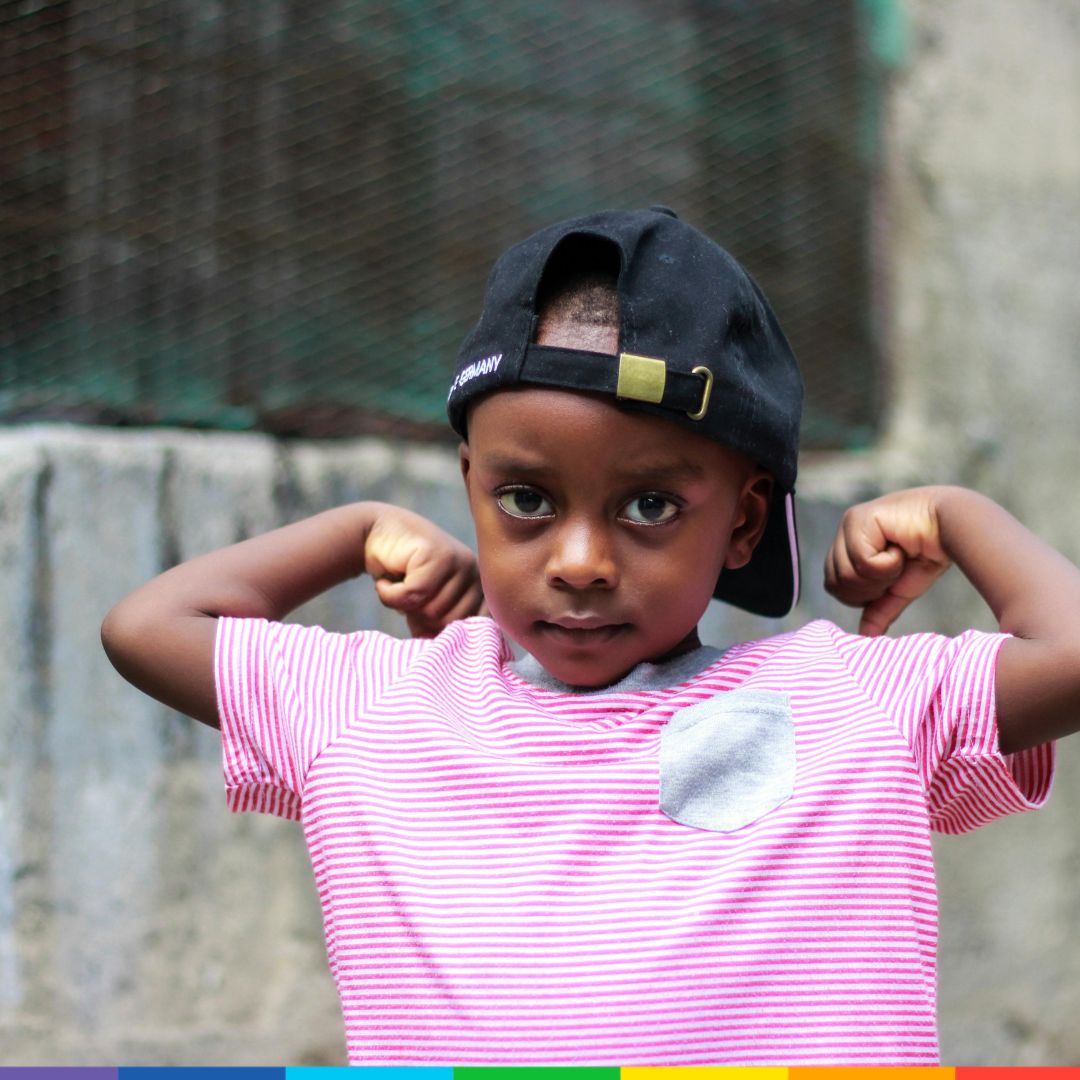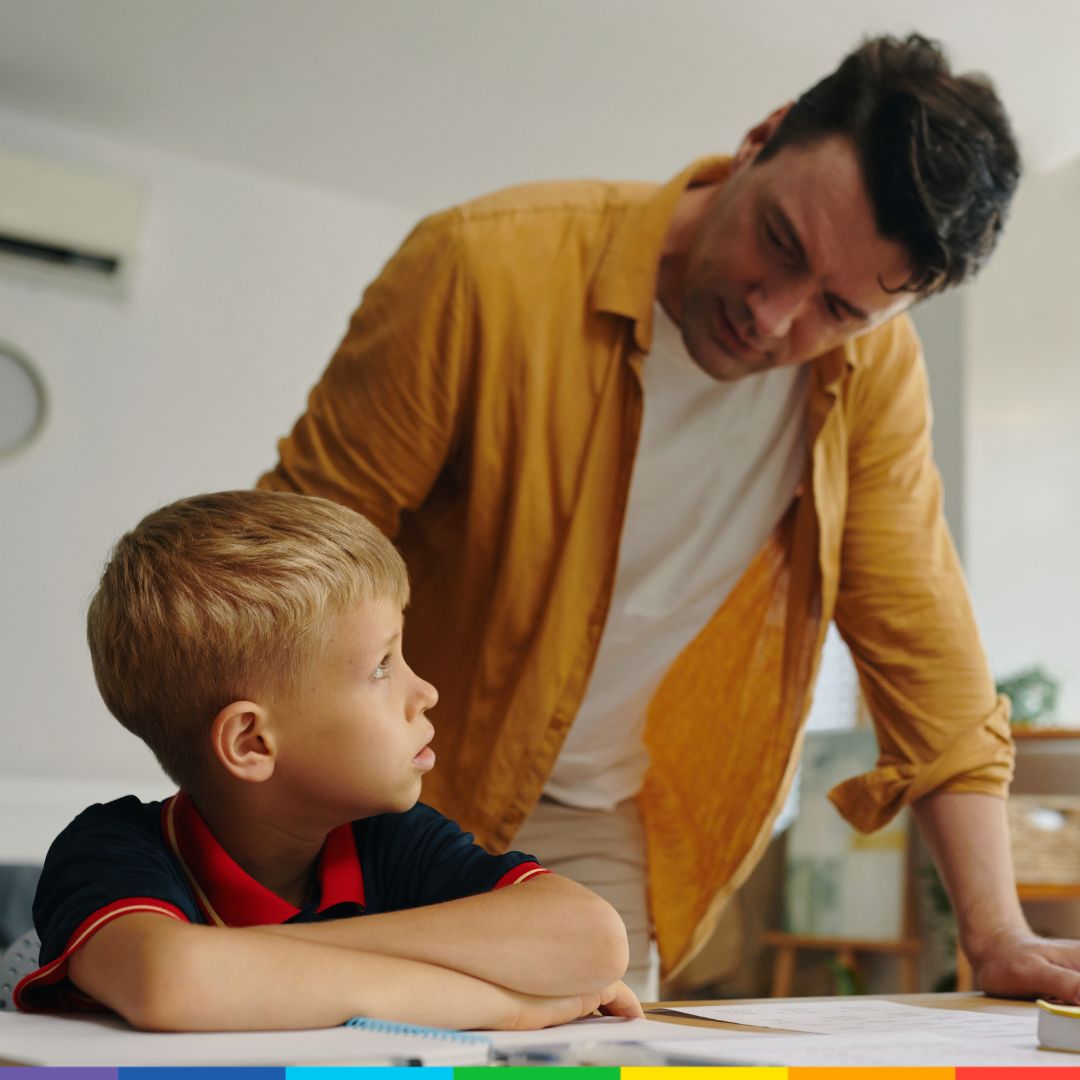
Parenting Tips
What is the Most Common Parenting Mistake and How to Fix it?
November 28, 2023
Related
Topics

Hey
-

Big Feelings – Helping Kids Handle Them : Best Tips 101
February 25, 2026
-

How to Build Confidence in Shy Kids: 12 Evidence-Based Tips
January 26, 2026
-

How to Teach Emotional Regulation to Kids (Aged 3–8)
January 15, 2026
-

5 Ways to Nurture SEL at Home (Fun Activities)
January 1, 2026
-

How Early Social Emotional Learning Help in Successful Life?
December 11, 2025
Ready for more?
Hey
Sign up for Rainbow Kiddies newsletters for more stories and updates
What is the most common and worst parenting mistake, and how do we rectify it? A book and a video that I saw recently happened to talk about how important repair and being present is for a parent-child relationship, or for any strong relationship if you think more about it. Without much ado, let us jump into our topic.
So, the book that I just finished reading is ‘The Power of Showing Up’ by Daniel J. Siegel which reiterates the fact that no parent is perfect. What is more important is to be present for your kids as far as possible, rather than strive to be perfect.
In fact, it would be difficult to even define a perfect parent. Every child is different, so is every parent and so are the various parenting styles. Still there is one thing we can all do for our kids. It is to be there for them whenever they need us, to be able to repair our parenting mistakes, and to take responsibility for our actions and words. This will help them grow up to be responsible, caring, confident and wonderful human beings.
The Four S’s & How is it Related to Fixing Parenting Mistakes?

Make them feel ‘Safe’
This book talks about four S’s which can ensure a healthy and empowering parent-child relationship. The first S is ‘safe’ – how important it is for kids to feel safe physically, emotionally and relationally. One of our main responsibilities as a parent is to make our child feel and know that they are safe. The author clarifies that this does not mean that we cannot mess up or hurt feelings at all. It is ought to happen more often than we would like it to. Yet, when it does happen, we should repair the damage as soon as we can, rather than sit in our own mess or let our children sit in theirs.
The Power of Repair – fixing parenting mistakes
I also came across this TED talk recently, which sounded so relatable, usable, and useful. It is again, about parents not being perfect and hence totally being capable of making parenting mistakes. The speaker also tells how we can effectively fix those parenting mistakes. Listen to this TED talk by Becky Kennedy on YouTube. It is titled ‘The Single Most Important Parenting Strategy’. She goes on to explain how to make a good repair, and how it is different from an apology.
She says that an apology often simply closes the conversation at hand without really having a fruitful discussion over it. Another issue she mentions is that kids tend to indulge in self-blame even when parents mess up. It is like an automatic coping mechanism for them. While doing this they still get to believe that their parents and the environment around them is good. They end up assuming that they are the ones at fault. We do not want our kids to get trapped in this place for sure. It would set them up for several self-esteem related issues in the future.
The Repair Strategy – let us learn to fix our parenting mistakes
She explains how repair works and how it can change the memory of a past event. Firstly, she urges us to repair with ourselves. It is almost like creating more self-awareness. This is going to be worthwhile for us not just to handle the situation at hand, but many more to come. Next step is to repair with our child. She says, “state what happened, take responsibility and state what you will do differently the next time”.
Now that makes so much sense. I would have really loved that if my parents or every important person in my life started to discuss things out like that. It would feel so much better instead of not being transparent or sitting in their own mess. That is something I want to try and do not just with my child, but with every person who I care about.
She gives a great example to clarify the whole idea that she is stating, one from her own life. She also tells us how a small intervention can make the child feel, safe, connected, and trustworthy. Further, she explains what kind of interventions don’t count as repair. These are things which we often indulge in, which includes not taking responsibility for our actions, sometimes even blaming the child for whatever happened, etc.
Another point she shares is that it is never too late to make such repairs. Again, she explains it with some great examples, so do listen to the talk if you can. As she rightly explains, as parents it is important for us to listen to our children, not to end up having a rebuttal but to try and understand them and their standpoint.
So what was our biggest parenting mistake?
Our inability to make repairs after a rupture. And now we know how to fix it. So let us try to make repairs whenever we can. It might not be possible to do it every single time due to various reasons. But the rest of the article will tell you how you can compensate in more ways.
Back to the Four S’s
Make them feel ‘Seen’
Now, let us come back to our book, ‘The Power of Showing Up’ by Daniel J. Siegel. The second S he refers to is to feel ‘seen’. This is not just about being with them physically, attending their performances or spending time with them, it is also about paying attention to their emotions and feelings, both positive and negative. It will be impossible to do it every time something goes wrong, but if we ever notice something wrong and we pitch in to help, they will feel seen and hence, secure.
The author says that when we see our child’s mind, we are enabling them to see their own mind too. He calls this mindsight. He goes on to explain that even if we did not have this in our life as a child, we can develop it as adults.
Make them feel ‘Soothed’
The third S that the author refers to is ‘soothe’. He also clarifies that this does not mean not letting the child face their own troubles and fights in life, but it is about teaching them to face these troubles and fights. It is about being there when they need us most. They should know that even when they are at their worst, they will have us and will not have to suffer alone. Read our story to know how Moon’s parents helped her become more assertive, by helping her figure out a solution to her problem.
Make them feel ‘Secure’
That leads us to the fourth S which is ‘security’. Having the first three S’s in place will automatically lead to the fourth one. This one is based on predictability. When they know that they are safe, seen and soothed, they will know that you have their back and they will feel secure. He also mentions that it might not be humanly possible to keep to it every time, but if we can manage well most of the time, it would make a huge difference. He also emphasizes that the neurobiological effect of having the four S’s is a nervous system which is resilient and knows how to destress effectively.
The Power of Secure attachment

The author sums up that these four S’s together will make them feel that they have at least one person who will always show up for them. This is how we can nurture secure attachment in our kids. He has also spoken about some of the long-term benefits of such secure attachment. Listing a few important ones here:
- Healthy self-esteem
- Better relationships
- Good emotional regulation
- Leadership qualities
- Better coping skills when under stress
- Empathy
- Trust in self and life
- Better social life and competence
Secure attachment nurtures adults who check off on most of the benefits listed above, and they call this free attachment. I am sure every parent wishes to do as much for their kids.
Let us All Fix our Parenting Mistakes!
I feel that ultimately, we as caretakers can shape our child’s life in more good ways than bad if we try just a little harder. Like all other concepts we ever spoke about, it is important that we feel good about ourselves as parents first. So, let us love ourselves, try to figure out what needs to be fixed in us, and in the process help our children grow up to be emotionally healthy. If there is a rupture, let us try to repair it and fix our biggest parenting mistake. Also remember that it is never too late to make repairs.
Happy parenting!
Sign Up for your Free Parenting Guide: “10 Everyday Ways to Raise an Emotionally Strong Child”




